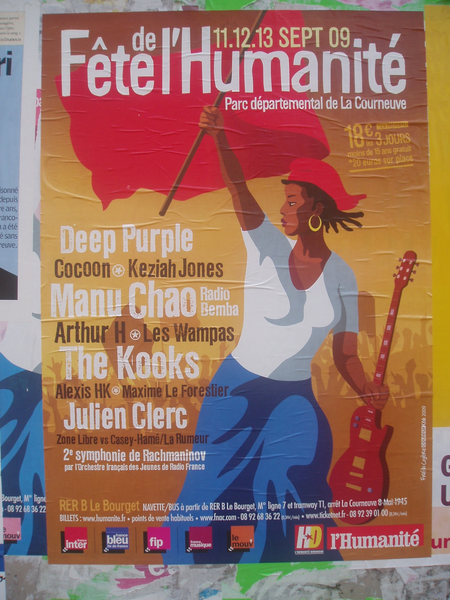Browse by Tags: marianne
 | Up a level |
Number of items: 1.
Conflicts in France: Marianne in XXI century France
Shared with the World by Mr Emmanuel Godin
Eugène Delacroix’ painting ‘Le 28 juillet 1830: la liberté guidant le peuple’ (1831) was not welcomed by the critics in 1831, but has become since an icone of French republican identity. This resource provides links to two websites which contextualise and critically analyse the ambiguous and contested message of Delacroix’ s painting. Since then, the central character of the painting has been used, reused and transformed a countless number of time. At the start of the XXI century , its remains an ubiquitous icone, but its meaning may have changed.
Undergraduate students may want to compare Delacroix’ painting with the poster produced by the French Communist Party in September 2009 for its annual conference/ celebration (La Fête de l’Humanité). The comparison may also include the flyer produced by Solidaires (a cartel of unions on the left of the left) for the 26 January 2009 demonstration against the reforms initiated by President Sarkozy. Students may want to discuss whether and how different re-workings of ‘Marianne’ have altered its meaning. Earlier representations are also included. A short indicative bibliography is included, stressing the significance of Maurice Agulhon's work on the subject. In his early work, Agulhon shows that there are two female symbols: 'Marianne', the earthy, loose-haired, threatening radical, with her Phrygian hat, sculpted by Francois Rude (1784-1855)on the Arc de Triomphe and a more stately, serene Goddess of Liberty with her start-girt crown, representing the Republique conservatrice. Finally further historical contextualisation, archival resources and interviews with experts can be accessed through the website 'France 1815 to 2003'.
Shared with the World by Mr Emmanuel Godin
![[img]](http://www.humbox.ac.uk//860/3.hassmallThumbnailVersion/Marianne_Fete_de_l%27Humanite_Paris_sept_2009.jpg)



